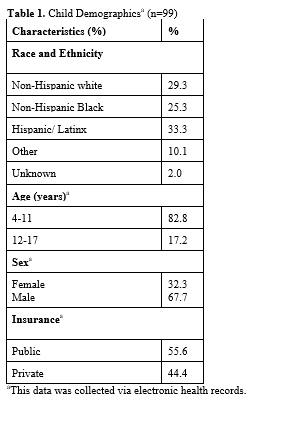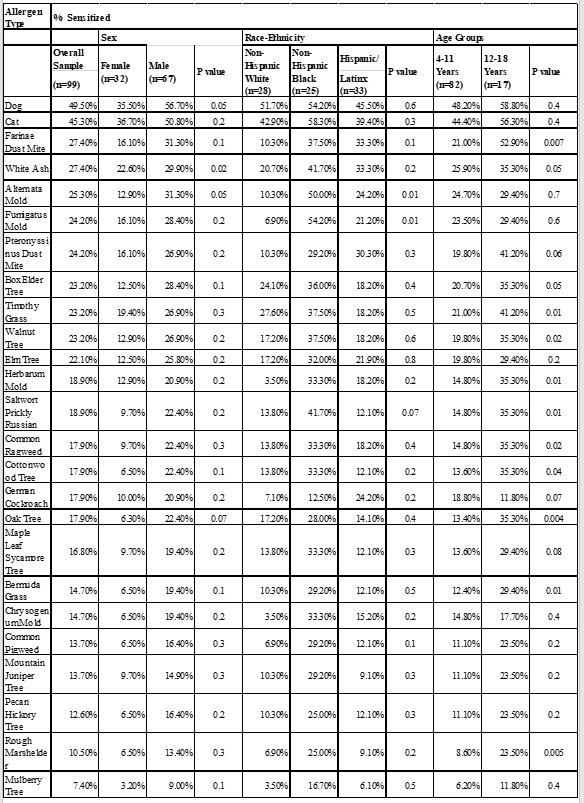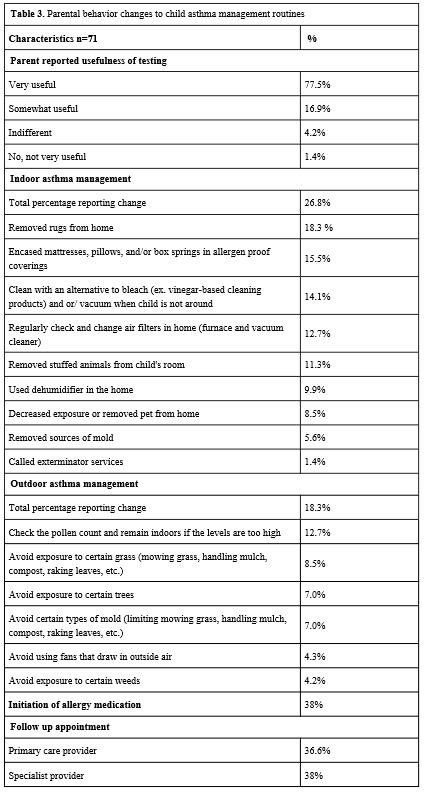Asthma
Asthma 1
363 - Prevalence and Perspectives of the Utility of Environmental Allergen Sensitization Testing in Children with Moderate to Severe Asthma
Publication Number: 363.302

Kristin Kan, MD, MPH, MSc (she/her/hers)
Assistant Professor
Ann & Robert H. Lurie Children's Hospital of Chicago
Chicago, Illinois, United States
Presenting Author(s)
Background: Aeroallergens are significant asthma triggers in pediatric populations.
Objective:
Identification of allergen sensitization through environmental allergen serum testing allows for improved avoidance via behavioral and environmental changes. We examined whether parents of children with asthma found serum allergen testing beneficial and whether they made modifications to actively avoid allergens.
Design/Methods: Parent-child dyads of children with moderate to severe persistent asthma (n=99) completed serum specific IgE environmental allergen testing. They were informed of test results and given detailed brochures describing avoidance strategies. Electronic surveys were administered to evaluate the perceived utility of allergen testing results and subsequent self-reported behavioral and environmental modifications. Univariate statistics were used to evaluate individual survey items. Chi-square tests were performed to test associations between categorical variables.
Results: The majority (94.4%) of parents found allergen testing useful. Subsequently, 26.8% of participants took steps to avoid specific indoor allergens, 18.3% avoided outdoor allergens, and 38.1% started their child on an antihistamine. The most common changes made after receiving positive allergen test results were removing rugs (18.3%) and staying indoors due to high pollen levels (12.6%).
Conclusion(s): Parents felt that allergen testing was useful to understand triggers which led to behavioral modifications in indoor and outdoor environments. Future research is needed to evaluate the impact of broadening allergen testing across disciplines and behavioral modifications on asthma outcomes.


